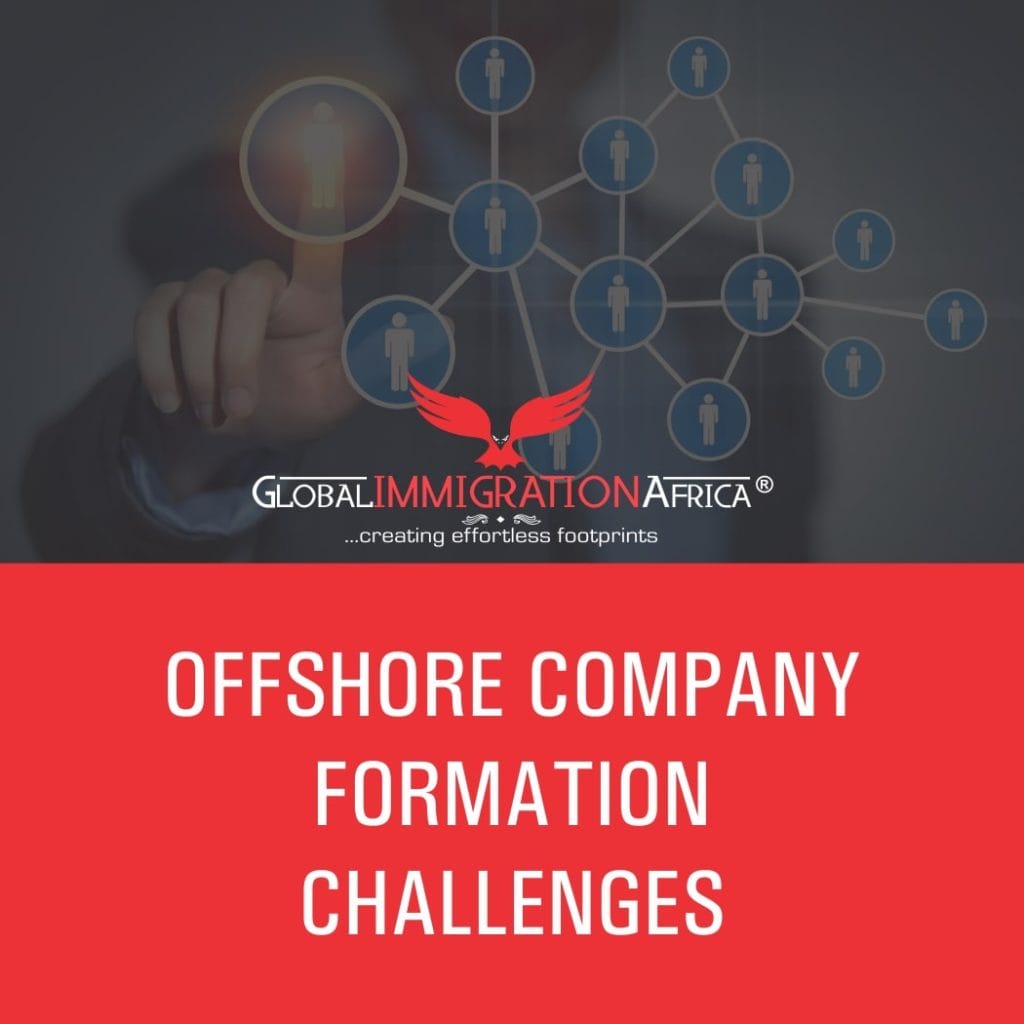We have compiled a list of 4 common challenges that are faced when starting an offshore company
MEDIA BRIEFING BY MINISTER GIGABA ON FALSE MESSAGES REGARDING UNDOCUMENTED IMMIGRANTS, AND THE CLOSURE OF LESOTHO SPECIAL PERMIT
Once more, thank you for attending. In recent weeks, we have noticed a disturbing trend of anti-immigrant sentiment and even disinformation.
The most recent has been the false messages circulating on social media alleging the department has called for immediate deportations of undocumented migrants from some African countries.
This was rebutted in a media statement the department issued on Friday, 20 January 2017.
We will not incite citizens to take the law into their hands when we have the legal means ourselves lawfully to control illegal migration and effect deportations as necessary.
International migration is a global phenomenon, and is increasingly prominent in political and social discourse in many countries. This is understandable, as it deals with core issues of citizenship, nationhood and belonging. It is tied to issues of economic opportunity.
South Africa, like many countries around the world, plays a careful balancing act in managing immigration. We value our connectedness with the rest of the world; our citizens visit and migrate to other countries, and so do we receive visitors and migrants from other countries.
In the period 9 December 2016 to 14 January 2017, over 1.4 million movements of citizens in and out of South Africa were recorded.
Like many countries, we strive to attract tourists, business travelers, skilled workers and investors. As part of our foreign policy which supports the integration and development of our region and continent, we are committed to making it easier for Africans to move in Africa.
At the same time, like all countries around the world, we are accountable first and foremost to our citizens. We have an interest in ensuring that all foreign nationals entering our country identify themselves, are properly admitted, and comply with our laws for as long as they are here. The vast majority of migrants in South Africa fulfill these obligations.
Like all countries around the world, we also prioritise our citizens when it comes to employment and other economic opportunities. Foreign nationals play an important role in bringing new knowledge, skills, networks and dynamism, but like all countries, we expect them to complement our workers, not be a substitute for them.
That is why a condition of all work visas, is that employers show they made a good faith attempt to find a South African to fill a particular role. That is why business visas carry the condition that 60% of a business’ staff complement must be South African.
And yet, many citizens, labour stakeholders and sister departments are concerned that many businesses do not want to hire South African workers, despite the millions of work-seekers who are willing and able.
In many quarters, this has led to the belief that businesses exploit migrants to lower wages and conditions, which is irresponsible, immoral and illegal. These types of practices and assumptions lead to heightened social tensions in communities, between South Africans and migrants, and can only cause harm.
We need to maintain a policy connection between foreigners working in South Africa and the employment and training of our citizens. The Green Paper on International Migration calls for a ‘whole of government, whole of society’ approach to managing immigration. We need the business community to play its part.
That is why we are seeking meetings with organized business, particularly in the restaurant and construction sectors, to improve our understanding of hiring practices and labour dynamics. We also want to enlist business as a partner in addressing and dispelling perceptions that there are businesses which prefer to hire foreign nationals to South Africans. A meeting is scheduled already with the hotel and restaurant sector.
We are confident that business is committed to developing South Africa, and playing its part in developing our local skills base, employing workers and growing the economy in line with the National Development Plan Vision 2030.
South Africa, like other countries in the SADC region, is well aware of challenges of border control, and the concomitant influx of economic migrants into the country, many under the pretext of asylum-seeking, with others breaking SA’s immigration legislation.
Special dispensations, for regularising the stay of migrants from SADC, are among means of managing this flow of migrant labour in the region. We had started with Zimbabweans, with no intention, as clearly communicated, to confer or create expectations of permanent residence.
Accordingly, we have advised Zimbabwean nationals, whose special permits are expiring, to apply for visas we issue under the mainstream immigration legislation, in the event they aspire tostay for any other purpose or period. On the basis of Cabinet’s decision on this matter, an announcement will be made on how we are going to proceed. But wild speculation, rumourmongering, raising false alarm, fear and loathing are unwarranted.
The inspectorate unit in the department’s immigration services ensures persons in South Africa are correctly documented, reside in the country on a lawful basis and acquire documents and status lawfully. It has standardised systems relating to the detection, detention and deportation of illegal foreign nationals in South Africa.
A total of 33 339 persons were deported during the 2015/16 financial year. Due to budgetary constraints, this number was lower than expected. And this I must emphasise: Resources levels in the inspectorate are below what is required to execute its broad national mandate.
Considering the fragmented nature of border management, government had resolved to establish a Border Management Authority (BMA) – a future, single, integrated border law enforcement body for South Africa. Once established, it will drive an integrated border management strategy to defend, protect and secure the country’s borders.
You would know that the department has set in motion an elaborate process to review the country’s international migration policy, best to deal with policy gaps, some of which constitute the very subject of this media briefing. Most of these issues do find expression in the Green Paper on International Migration, gazetted in June 2016.
We are amending the refugee policy also to close gaps in legislation while a comprehensive policy is underway. Proposed changes, as contained in the Refugee Amendment Bill of 2015, will impact greatly on the status determination process, to protect and prioritise genuine asylum-seekers, thus to make the asylum-seeker process less attractive to economic migrants.
The number of asylum seekers received from January to December 2015 is 62 159. Of these, 2 499 were recognised as refugees, averaging 4.2% of total applications received during 2015. A total of 58 141, that is 95.8% of applications, were rejected, as they were manifestly unfounded (not related to the criteria for granting refugee status) or unfounded (with no basis on fact).
We believe strongly that a regional approach to issues of migration will deliver a better deal for ourselves and for the continent. Push factors of illegal migration may best be addressed in cooperation with countries of the region and Africa as a whole.
Our engagement, for instance with the Kingdom of Lesotho, should be understood in this context of collaboration with SADC neighbours.
Closure of applications for Lesotho Special Permit (LSP)
The application process for Lesotho Special Permit has run its course. The object was properly to document and regularise the stay of Basotho in South Africa for work, study or business.
The LSP process, approved by the SA Cabinet in October 2015, followed closely the regularization, through the Zimbabwean Special Dispensation permit (ZSP), of the stay of Zimbabweans who were in South Africa illegally.
The LSP application process commenced in March 2016, with a closing date of June 2016. It was extended to September 2016, but finally closed on 31 December 2016.
The total number of online applications submitted at VFS was 127 048. By the closing date, 88 563 Basotho nationals had completed the application process. Focus is now on adjudication and processing of the completed applications. To date, 31 019 permits have been collected.Applicants must phone VFS call-centre to check and collect their permits.
Basotho who produced Lesotho ID cards or birth certificates when applying, without valid passports, and still with outstanding documents, must provide all supporting documents before 31 March 2017, to finalise the application. VFS will be in contact with applicants to assist as necessary. This is only for those who paid by 31 December 2016 and have proof of payment.
In a nutshell, LSP benefits are to:
- Relieve pressure from the asylum seeker management process
- Provide amnesty to Basotho who obtained SA documents fraudulently
- Regularise Basotho residing in South Africa undocumented, and
- Suspend deportation of Basotho who reside in the RSA undocumented, by allowing them to apply for LSP, except those persons who are convicted criminals.
Amnesty and moratorium not to deport will be lifted on 31 March 2017. Accordingly, those who have paid by 31 December 2016 but have not completed the application process by 31 March 2017 will be deported, just as we deport all other undocumented persons in the country.
We request employers and schools to allow all Basotho nationals who have applied for the LSP permit to continue their employment and school attendance using their proof of application receipt until the LSP permit is issued.
Cooperation with countries of the region, and the African continent, is crucial.
I thank you.

